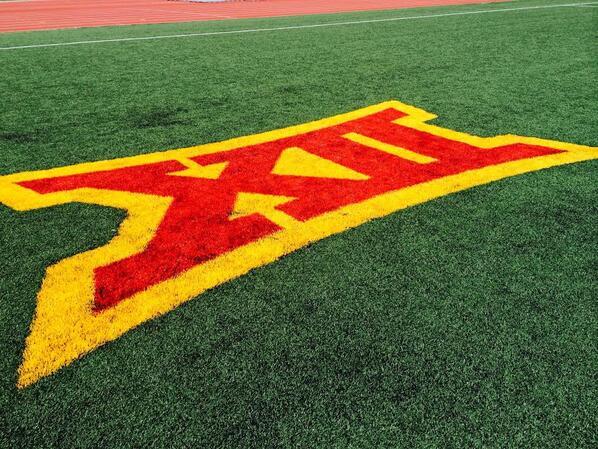DALLAS — Tell us what you really think, commish.
For the second July in a row, Big 12 commissioner Bob Bowlsby took the NCAA behind the woodshed at the league’s annual media days at the Omni Hotel in downtown Dallas. Bowlsby was calm and collected but also very quotable while addressing the hundreds of media members in attendance.
Bowlsby was Hulk Hogan in Wrestlemania III. The NCAA was Andre, the once proud but now fragile Giant, being slammed to the mat.
Bowlsby’s message: Change is coming and not everybody is going to like it.
Not only did Bowlsby note that “cheating pays” currently in college athletics, but he also made it very clear that some men’s Olympic sports could be in jeopardy should certain changes come to the world of college athletics – changes that are anticipated.
Note to the Iowa State fan hoping that somehow baseball will be brought back: Forget about it.
“If you like what you see in intercollegiate athletics right now, you’re going to be disappointed when the change comes, because it’s coming,” Bowlsby said. “The scholarships are going to change. The relationship between student‑athletes and their universities are going to change. I expect significant change will come in the area of recruiting from the very earliest stages of the recruitment process through campus visits and the declaration and signing of the national letter of intent.”
Right or wrong, this, in return, is going to cost athletics departments millions of dollars.
How it will directly affect Iowa State comes down to simple economics. Texas for example, obviously has more money and resources than Iowa State does. This has always been the case. This will always be the case. Even though Iowa State is in a better situation financially now than it has ever been in before (thanks to television revenue), the Cyclones will be hit harder by reform than some of its wealthy Big 12 counterparts.
Sure, Iowa State is making more money now than ever before but so is everybody else. The difference between the haves and the have-nots has changed only in the sense that the little guy has more cash to play with. But so does the rich guy.
“I think all of that in the end will cause programs to be eliminated,” Bowlsby said. “I think you’ll see men’s Olympic sports go away as a result of the new funding challenges that are coming down the pike. I think there may be tension among and between sports on campus and institutions that have different resources.”
Bowslby stressed that changes in scholarships will cost athletic departments millions of additional dollars. He doesn’t expect coaches or administrators who enjoy outrageous salaries to make less money either. That cash has to come from somewhere.
"I really do believe that it will be very difficult to run the kind of breadth of program that hundreds of thousands of student‑athletes currently enjoy if we begin diverting significant amounts of money to other purposes," Bowlsby said.
And don’t forget about Title IX. This is why men’s Olympic sports are the ones that likely would be impacted most as the changes Bowlsby sees coming become reality.
“Anything we do for male student‑athletes, whether it’s just in football or basketball or if it’s in a wider array of sports, we will absolutely be doing for all of our student‑athletes,”Bowlsby said. “Title IX doesn’t go away because we’re going to do something higher benefited for student‑athletes in a couple of sports. We have both a legal obligation and a moral obligation to do for female student‑athletes and male Olympic sport student‑athletes just exactly what we do for football and basketball student‑athletes. I don’t think it’s even debatable."
CROSSROADS: Obviously, there is another side to this story and Bowlsby made note of that. Football and men’s basketball players generate millions of dollars for athletics departments around the country. But…
“If you apply any form of the labor theory of value at all, it is hard to justify paying student‑athletes in football and men’s basketball and not recognizing the significant effort that swimmers and wrestlers and lacrosse players and track athletes all put in,” Bowlsby said. “Football and basketball players don’t work any harder than anybody else; they just happen to have the blessing of an adoring public who is willing to pay for the tickets and willing to buy the products on television that come with the high visibility.”
FEMALE OFFICIAL: For the first time in league history, a female official will work a Big 12 game this season. This will occur on Sept. 6 when Southeast Missouri State travels to Kansas.
“She is not there because she is a female,” Bowlsby said. “She is there because she’s paid her dues and because she is a really outstanding football official.”
ROUND ROBIN/PLAYOFFS: Bowlsby’s response to the playoff committee’s reaction to the Big 12 not having a championship game:
“I like our path to the championship. Our champion has been decided on the last day of the season for about five years. So we have great competition at the end of the year.
I think there will be a year when we’ll say: Gosh, if we could have just played one more good opponent we might have been able to demonstrate that we were good enough.
But you also, when you play that playoff game at the end of the year, you also have two of your better teams presumably that play each other, and one of them becomes damaged goods. And it may not be the one you want.
So I think that the answer is some years it’s a good thing; some years it’s not a good thing. But I like our paths to the championship. I think the fact that we play everybody in our league is a nuance that is not going to be lost on the selection committee.
They will look very carefully at other leagues when you’re 7‑1 and another league ‑‑ it’s not going to be 7‑1 as a standalone number. It’s 7‑1 based on who you played and who you beat and also who you didn’t play.
So I like our path to the championship very much. And that really is sum and substance of why we are promoting the difference between how we determine a champion and how other leagues determine their champions.”






